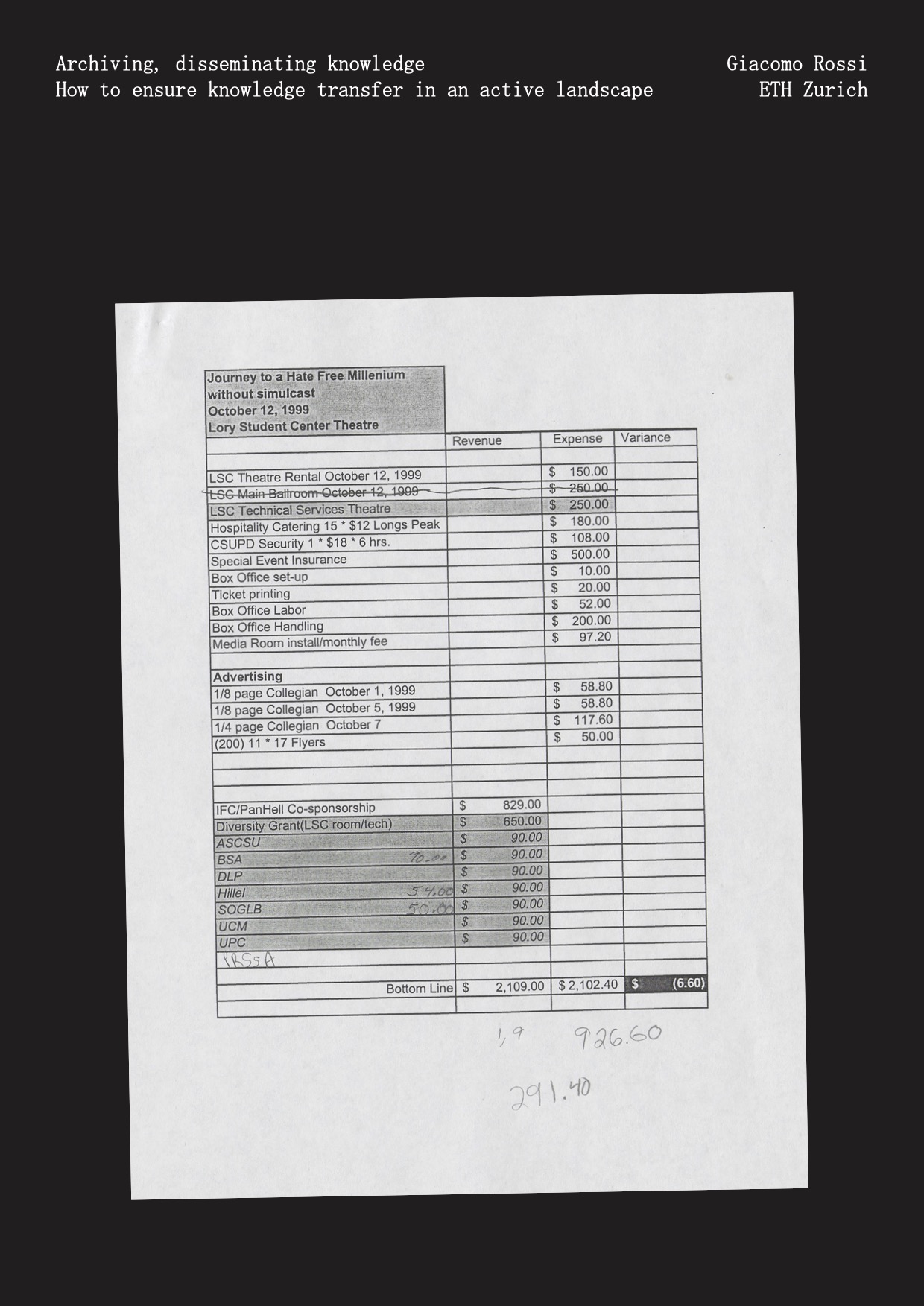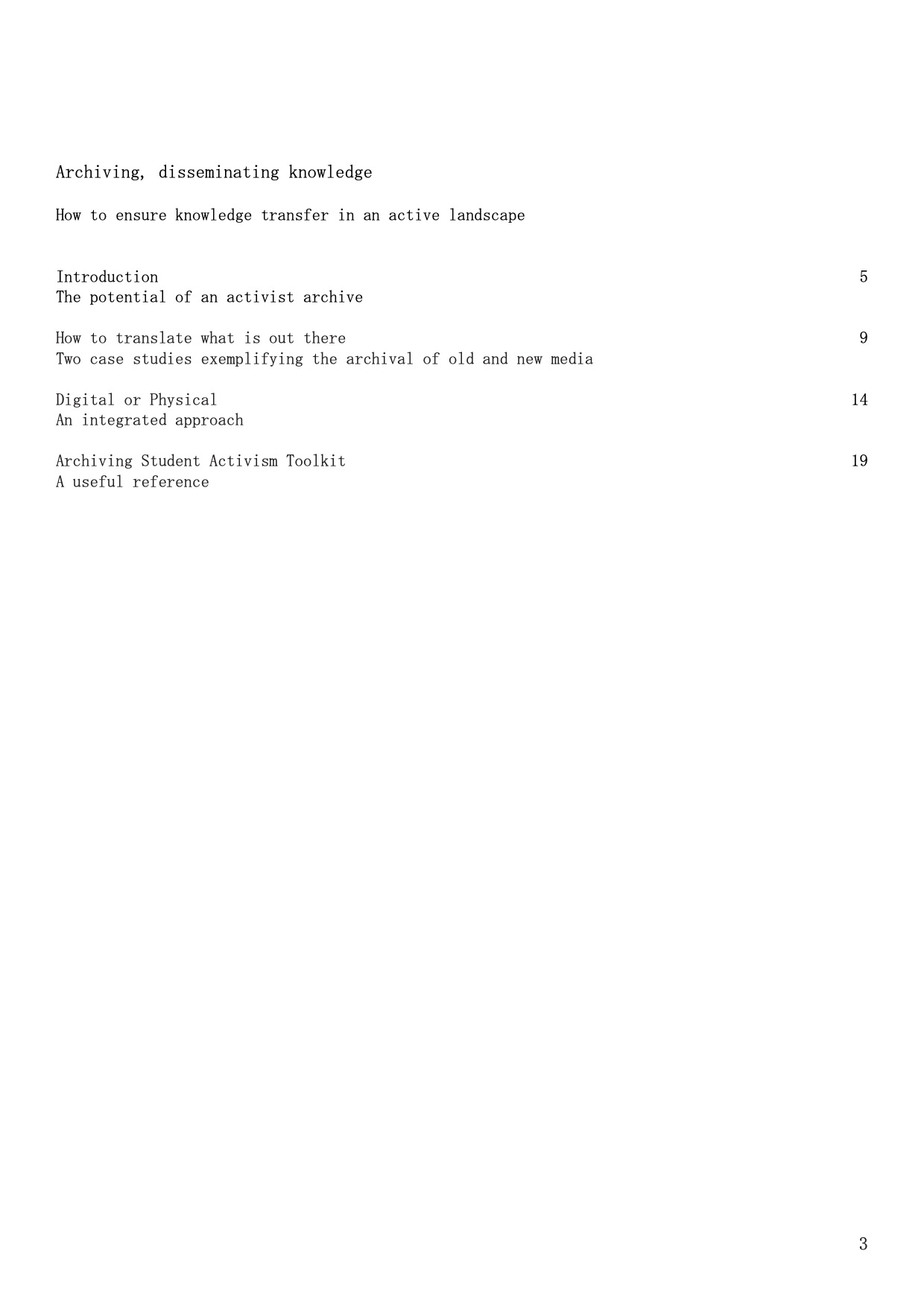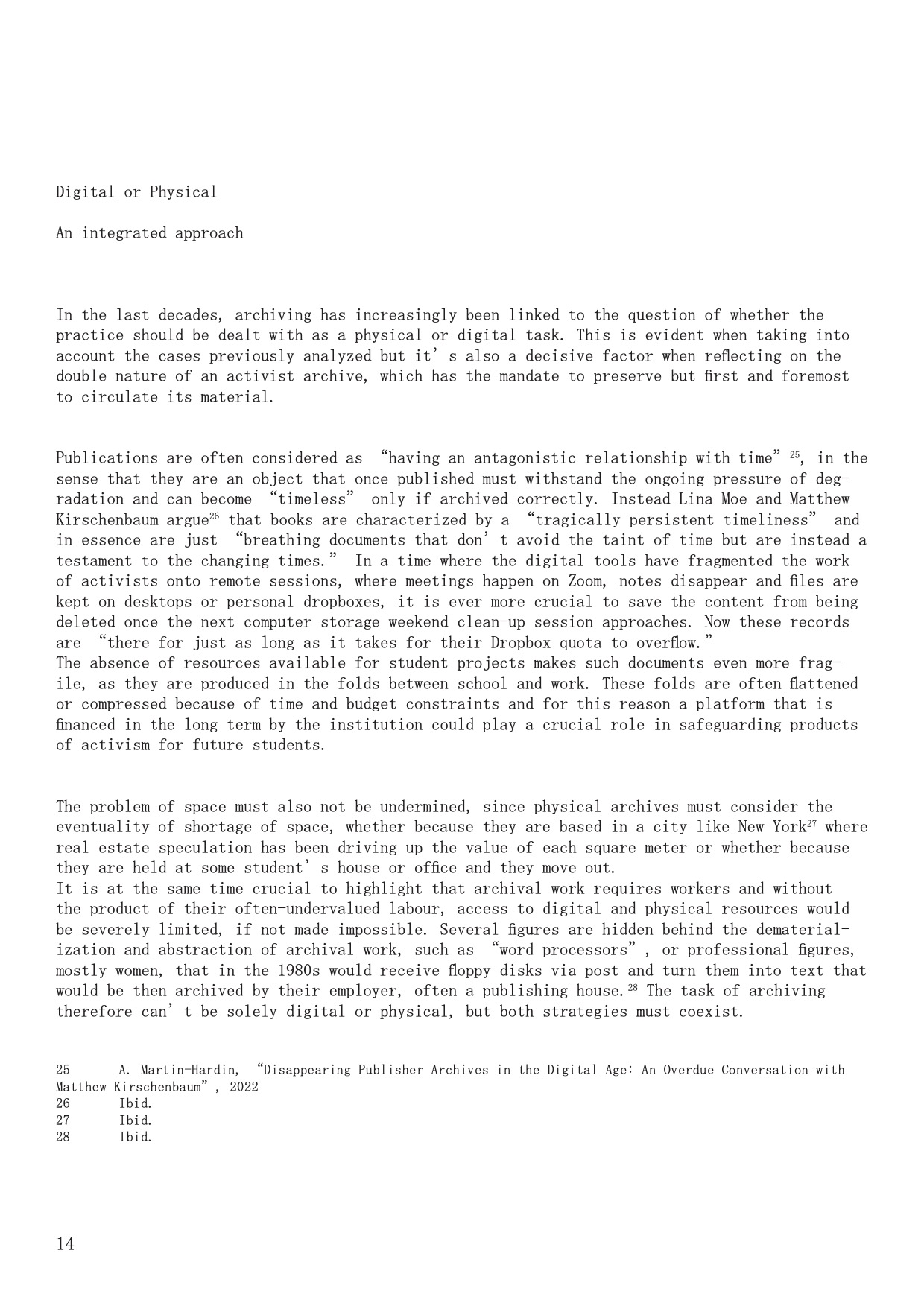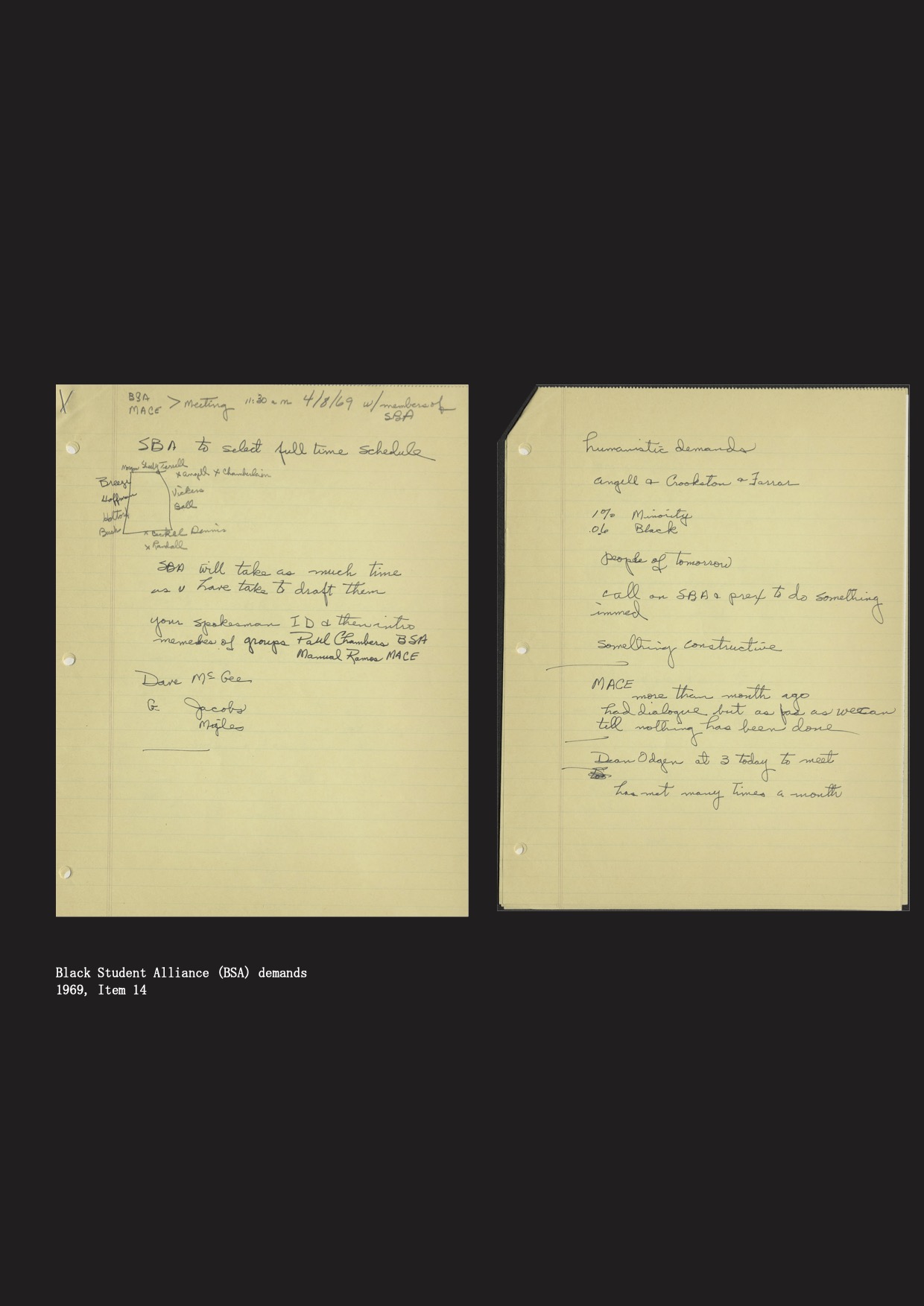In the ever-transforming landscape of higher education, where students and faculty are constantly shifting, the precarity of contracts and the employment of a great deal of volunteer work results in the difficulty of building long term imaginaries. A direct result of this is the intrinsically cyclical nature of student activism. As noted by an archival team at McGill University in Montréal, student activists are often unaware of how and when their predecessors were organizing around the same issues.
This research reflects on the possibilities offered by archiving student activism, ensuring enduring access but also making sure the information is circulated.
Activist archives should prioritize dissemination and access to collections rather than preservation and item-level processing to make the collections available to users despite limited resources.
Building an inter-generational exchange allows to create links across activists and ensure that short-lived projects can have a long-lasting effect on the structures that absorb them. Several cases are analyzed, including that of activists at Georgetown University, where institutional archives were used to raise awareness, foster broader participation in campaigns and demand reparative justice for the descendants of enslaved people sold by the University in the 1830s.
This research reflects on the possibilities offered by archiving student activism, ensuring enduring access but also making sure the information is circulated.
Activist archives should prioritize dissemination and access to collections rather than preservation and item-level processing to make the collections available to users despite limited resources.
Building an inter-generational exchange allows to create links across activists and ensure that short-lived projects can have a long-lasting effect on the structures that absorb them. Several cases are analyzed, including that of activists at Georgetown University, where institutional archives were used to raise awareness, foster broader participation in campaigns and demand reparative justice for the descendants of enslaved people sold by the University in the 1830s.




